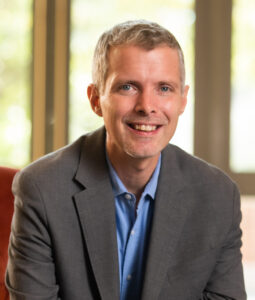U-M’s Poverty Solutions takes an evidence-based approach to improving life in Detroit and beyond

By: Rick Haglund
Source: Special to Michigan News
Luke Shaefer is the director of Poverty Solutions, a university-wide initiative that partners hundreds of University of Michigan faculty experts and student researchers with community organizations and policymakers to alleviate poverty. Shaefer said about 50% of its work is in the city of Detroit, where Poverty Solutions has provided critical expertise in such areas as tax foreclosure, public health and auto insurance reform. Shaefer detailed some of that work in a recent interview.

Luke Shaefer, Director of Poverty Solutions at U-M
What was the impetus for creating Poverty Solutions?
It began as a presidential initiative, actually. In 2016, there was a committee formed to put together a charge for an initiative on poverty. It was a wonderful committee with folks from all across the university who decided it was time to build on a really long and proud tradition of basic research on poverty, to now have a much more engaged program that would partner with communities and really try to test out strategies. So the mission was formed to partner with communities and policymakers to find new ways to prevent and alleviate poverty.
What have been some of those partnerships?
It was in the first year or two that we formed a partnership with Detroit Mayor Mike Duggan and his administration in the city called the Partnership on Economic Mobility. I think a lot of our most impactful work has been done in partnership with the mayor’s office and with the different city departments. We’ve done a great deal with housing and revitalization. We’ve worked a great deal with workforce development and with public health. So a lot of how we live out our mission happens in the city of Detroit.
What are some of the projects you’ve done that you’re most proud of?
Everything we work on is done in deep partnership with community groups and policymakers…
